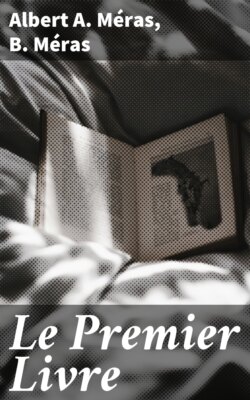Читать книгу Le Premier Livre - Albert A. Méras - Страница 8
На сайте Литреса книга снята с продажи.
Simple Vowel Sounds
Оглавление1. a, short, somewhat like the first o in follow: la, table, quatre.
2. a, long, like a in Arthur: â, ~ation, ~as, ~ass~.
(a) When a has a circumflex accent: pâle.
(b) When a is followed by ~tion: conversation.
(c) Generally when followed by s: pas, passer.
3. e, mute, like e in the pronounced rapidly with the following word, the boy: ~e, ~es, ~ent.
(a) Entirely mute at the end of a word, in the ending ~es of words of more than one syllable, and in ~ent of the third person plural of a verb: porte, parles, parlent.
(b) Slightly pronounced at the end of a syllable in the body of a word: petit, acheter.
(c) Fully pronounced at the end of monosyllables: le, je, me.
4. é, closed, almost like i in fit: é, ~er, ~ai, ~ez, et.
(a) When e has the acute accent: été, défini.
(b) In the ending ~er of the infinitive and other words in which the r is silent: parler, marcher, soulier.
(c) In the ending ~ai of the verb: j'ai, je parlai.
(d) In the ending ~ez: chez, nez, parlez.
(e) In the conjunction et.
5. è, open, like e in egg: è, ê, ai, ei, ~es, ~et.
(a) When e has the grave accent: mère, père.
(b) When e has the circumflex accent: être, même.
(c) ai when followed by a consonant and in the endings of the imperfect and present conditional: mais, air, parlais, parlaient.
(d) ei in the body of a word: treize, neige.
(e) In monosyllables ending in ~es: mes, tes, tu es, il est.
(f) In the ending ~et: sujet, complet, il promet.
(g) When e is followed by a sounded consonant in the same syllable: bel, avec, quel, elle.
6. i, y, like ee in see: si, ici, style, syllabe.
7. ô, closed, like the o in no: ô, au, eau.
(a) When o has the circumflex accent: rôle, le nôtre.
(b) Generally when o is followed by s: nos, chose, poser.
(c) Also when followed by any other consonant at the end of a word: trop, mot, repos.
(d) When o is followed by ~tion: émotion, notion.
(e) au in most cases: pauvre, autres, il faut.
(f) eau in all cases: beau, bateau, chapeau.
8. o, open, like o in or: notre, poche, mort.
9. u, no English equivalent (German ü): u, eu (in verb avoir).
In order to pronounce the French u, try to pronounce ee in see with the lips rounded in position for whistling.
(a) u in all cases: du, rue, plus.
(b) eu in verb avoir: eu, j'eus, il eut.
(c) u preceded by g or q and followed by a vowel is usually silent: langue, que, quatre, guider.
10. ou, like oo in too: tout, ou, sous, nous.
11. eu, œu, closed; no English equivalent.
With the lips rounded in position for whistling, try to pronounce the e in the when said rapidly with the following word, the boy.
(a) eu at the end of a word or when followed by a silent consonant: feu, peu, deux, mieux.
(b) œu at the end of a word or when followed by a silent consonant: vœu, nœud.
12. eu, œu, open, like u in fur. Eu and œu have this sound when followed by r and generally when followed by any other sounded consonant in the same syllable: leur, seul, peur, cœur, sœur, bœuf, œuf.
